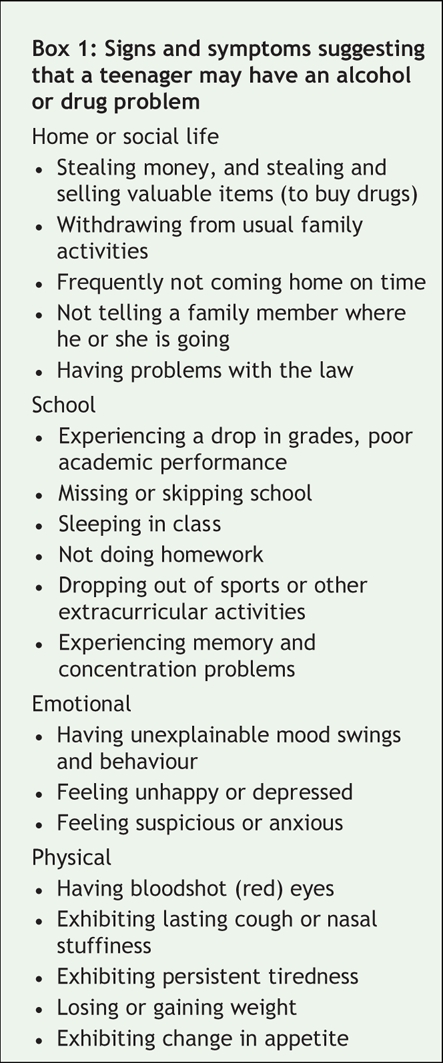How common is drug use among teenagers in Canada?
According to the Ontario Student Drug Use Survey (1997–2007), the most commonly used substance among teenagers is alcohol: about two-thirds of teenagers reported drinking alcohol in the year before the survey, and 1 in 5 teenagers drank in a way that may put them at risk of problems with health, school work or other problems. The survey also revealed that the second most commonly used drug is cannabis (also known as marijuana, pot or weed). About one-third of Canadian teenagers surveyed reported using cannabis in the year before the survey. Use of other drugs such as ecstasy, LSD, cocaine and crystal methamphetamine was much less common, with about 1 in 20 students reporting use of these drugs in that period. The survey indicated that one-third of teenagers reported not using any drugs (including tobacco and alcohol).
A 2007 report from the Canadian Centre for Substance Abuse indicated that some teenagers were at greater risk than others of having drug or alcohol problems. This included teenagers who had a family member with a drug or alcohol problem, those who had mental health disorders such as depression or anxiety, those involved with the legal system, or those living on the street.
At what age do teenagers start experimenting with drugs or alcohol?
A 2004–2005 Health Canada survey revealed that the average age of first use reported among grade 7–9 students was 11 years for alcohol and just under 13 years for cannabis. Some teenagers will “experiment,” but others will use these substances on a more regular basis and go on to have drug or alcohol problems.
What signs and symptoms suggest possible alcohol or drug problems?
Box 1 outlines a number of signs that may suggest alcohol or drug use; however, some of these effects or behaviours may suggest additional problems. It is important to seek further assistance from a family doctor, pediatrician or school counsellor if you suspect that a teenager is getting into difficulty with alcohol or drugs.

Box 1.
What can I do if I suspect that a teenager is using drugs?
Start by speaking with the teenager. It is important not to accuse him or her of anything; rather, you should point out your concern about the troubling behaviour and ask if he or she might be using drugs or alcohol. If you are a friend of a teenager who denies using drugs or alcohol, you should speak with his or her parents or a teacher. If you are the teenager's parent, reiterate your concerns about his or her health and well-being, and then monitor his or her behaviour at home and at school. It is important to encourage teenagers who show signs of having a problem with alcohol or drugs to see their doctors or counsellors who have experience working with teenagers.
Where can I find more information about drugs and about drug use among teenagers?
There are a number of resources where parents and teenagers can find information about tobacco, alcohol and other drugs.
Helpful resources include the Centre for Addicion and Mental Health (www.camh.net/index.html), Parent Action on Drugs (www.parentactionondrugs.org/index.php), the Canadian Health Network (www.canadian-health-network.ca), Global Youth Voices (www.globalyouthvoices.org) and the Kids Help Phone (www.kidshelpphone.ca; 800 668-6868).
Karen Leslie MD Division of Adolescent Medicine and Department of Paediatrics Hospital for Sick Children Toronto, Ont.
Footnotes
Une version française de cet article est disponible à l'adresse www.cmaj.ca/cgi/content/full/178/2/149/DC1
Competing interests: None declared.


